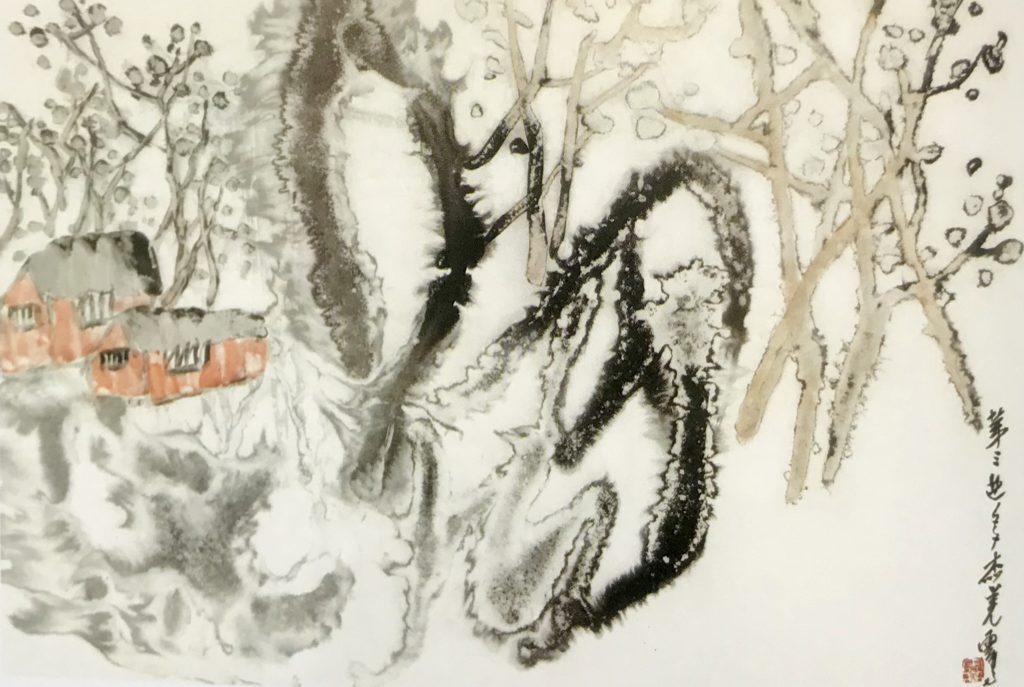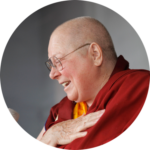
There are many incorrect and even evil views held by Buddhists and non-Buddhists alike concerning the role of merit in becoming an enlightened or Holy Being. First you must understand that you cannot become a holy being JUST MY DOING GOOD DEEDS! Doing good deeds will help you attain a better rebirth in the heavens or as a human in samsara, but it is still a conditioned thing and you must realize the unconditioned state and end the cycle of birth and death to become a holy being. To do that you must also practice unconditioned, holy dharma.
It is also incorrect to think that one can attain much merit from reciting sutras, if one does not understand the meaning and principles contained in what one is reciting.
Evil View No. 13: Acknowledging that doing good deeds alone fulfills the requisite condition to attain holy nirvana
Those who with this view think that as long as they do good deeds and everything that they do benefits living beings, that is enough for them to attain the nirvana of holy beings and become a Buddha or Bodhisattva. One must know that doing good deeds is performing conditioned charity. Based on the law of cause and effect, such charity will result in karmic rewards in the human or heavenly realms. However, attaining holy nirvana entails realizing a holy state. That means attaining the unconditioned state in which one has ended the cycle of birth and death and possesses total self-mastery. It means reaching that holy land where there is no arising or ceasing. Therefore, thinking that one can attain holy nirvana by simply doing good deeds is an evil view. You must understand that in addition to doing good deeds one must also practice unconditioned, holy dharma. Only then can one attain holy nirvana. There is no other path to attain holy nirvana.
Erroneous View No. 16: Acknowledging that if one merely does good deeds but does not do a dharma practice, one can still attain liberation
Those with this view think that as long as they do good deeds, such as building more bridges, paving some roads, or providing relief to some people in need, they can attain liberation without doing their dharma practice. This is incorrect. Doing such good deeds will result in experiencing karmic rewards limited to good fortune in the human or heavenly realm. It will not result in liberation. One can attain liberation only when one combines doing good deeds with cultivation and doing one’s dharma practice.
Erroneous View No. 18: Acknowledging that realizing emptiness is unrelated to the extent of one’s virtue and meritorious resources. Many people in ancient times followed this view, as do many people today. Those with this view think that realizing emptiness means understanding the emptiness of the four great elements and living a life not contaminated by the objects of the six senses. How can merit and realization exist in emptiness? This is an erroneous view. All supernatural abilities arise from realizing emptiness. All realization of emptiness is attained through merit accumulated from cultivation. Only by transforming one’s karma through cultivation that accumulates merit can one realize emptiness. That is why Buddhas taught all living beings to constantly practice the six paramitas, abide by the precepts, and so on. This is the perspective from which you should try to understand this matter.
Erroneous View No. 86: Acknowledging that one may engage in the hollow practice of chanting the text of a sutra without understanding its meaning
Those with this view think that there is much merit in just reciting a sutra even though the person reciting it does not understand the meaning and principles of the sutra. This is incorrect. Before reciting a sutra, one must understand its text.


The Mandarin Words Usually Were In ‘Merit’ And “Virtue” Read Together Which Meant In ‘Gong’ And “De”. Many Peoples Said That ‘Merit’ Was Subjected To ‘Reward’ Here And Hereafter. And Cannot Be Transcendental Unlike The “Virtue”. As Your Are Aware In Those Liberated Name Of Great & Holy “Virtue” Ones. Didn’t They Named The Buddha & Mahasattva The Giant Holy Virtue Ones…..?